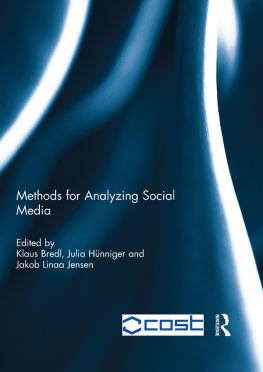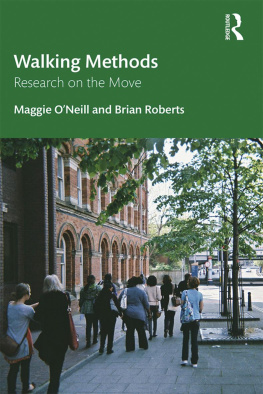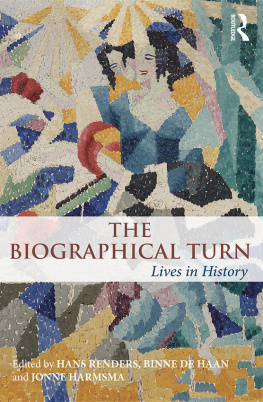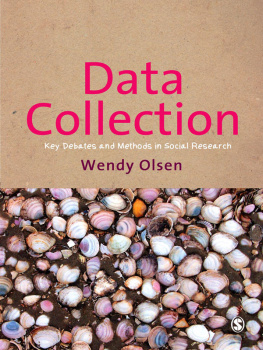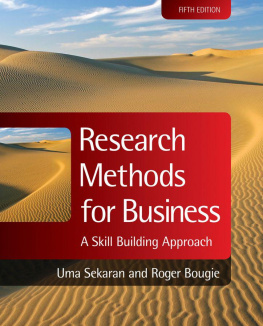Using Biographical Methods in Social Research
Using Biographical Methods in Social Research
Barbara Merrill and Linden West

Barbara Merrill and Linden West 2009
First published 2009
Apart from any fair dealing for the purposes of research or private study, or criticism or review, as permitted under the Copyright, Designs and Patents Act, 1988, this publication may be reproduced, stored or transmitted in any form, or by any means, only with the prior permission in writing of the publishers, or in the case of reprographic reproduction, in accordance with the terms of licences issued by the Copyright Licensing Agency. Enquiries concerning reproduction outside those terms should be sent to the publishers.
SAGE Publications Ltd
1 Olivers Yard
55 City Road
London EC1Y 1SP
SAGE Publications Inc.
2455 Teller Road
Thousand Oaks, California 91320
SAGE Publications India Pvt Ltd
B 1/I 1 Mohan Cooperative Industrial Area
Mathura Road, Post Bag 7
New Delhi 110 044
SAGE Publications Asia-Pacific Pte Ltd
33 Pekin Street #02-01
Far East Square
Singapore 048763
Library of Congress Control Number: 2008939384
British Library Cataloguing in Publication data
A catalogue record for this book is available from the British Library
ISBN 978-1-4129-2959-2
ISBN 978-1-4129-2958-5 (pbk)
Typeset by C&M Digitals (P) Ltd, Chennai, India
Printed in Great Britain by MPG Books Group, Bodmin, Cornwall
Printed on paper from sustainable resources
IN MEMORY OF OUR PARENTS
Contents
Acknowledgements
The writing of this book has been influenced by many colleagues in research organisations, such as ESREA and SCUTREA, whom we have worked with over the years. Their ideas and stories have helped to shape the way we think and feel about biographical research. Help has also come from those we have interviewed for research, or taught, using biographical methods. We would also like to thank Patrick Brindle, our editor, for his encouragement, patience and support. And we are grateful to Brenda Wilson and Charmian Cowie for helping with the presentation of the text and translating it into the Sage style. Finally, many thanks to some of our students who read and commented on draft chapters. The book is, because of all these people, a product, like life itself, of profoundly auto/biographical processes.
1
Introduction
Setting the Scene
The finest-meshed sociological net cannot give us a pure specimen of class, any more than it can give us one of deference or of love. The relationship must always be embedded in real people and in a real context. (E.P. Thompson, 1980: 8)
From the outside looking in, an observer might see a common condition: a son is killed in Vietnam, a daughters mind is destroyed by LSD, a woman is divorced, a man becomes subject to mandatory requirement, there is a divorce. Yet, in interior life, what happens to one is unique. Life histories, like snowflakes, are never of the same design (Audrey Borenstein, 1978: 30)
Overview
In this chapter:
- We explain the relevance of the book and introduce the biographical turn.
- We introduce ourselves.
- We identify who the book is for and what we seek to achieve.
- An outline of the chapters and structure of the book is provided.
Why did we write this book and who is it for? The answer to these questions lies in our belief, based on extensive experience of doing biographical research, that such methods offer rich insights into the dynamic interplay of individuals and history, inner and outer worlds, self and other. We use the word dynamic to convey the idea of human beings as active agents in making their lives rather than being simply determined by historical and social forces. Such an idea with immense implications for the way we think about research has, from time to time, been lost or marginalised in social science. Yet it has recently found renewed impetus, and if we think of people like you and us as actively experiencing, giving meaning to and creating their worlds, we need to know more about how this happens, how it is understood by those concerned, and how it can be made most sense of.
We think this is an opportune time to produce such a book: we are all, it seems, biographers now and want to tell our stories. The genre is pervasive throughout our culture. A glance in most bookshops will reveal the extent to which biography and autobiography serve as prime vehicles for self and social exploration, or maybe self promotion. This is an age of biography, and telling stories seems ubiquitous in popular culture: we consume the stories of celebrities, are fascinated by stories on reality TV, and are constantly intrigued by wartime narratives, as witnessed by various series being repeated on television (Goodley et al., 2004). Gossip and celebrity magazines, fun-based websites, podcasts, blogs, biopics (film) and biodramas (theatre) are all sites for biographical expression and experiment, by ordinary people as well as celebrities. New biographies of celebrities appear, it seems, almost daily. Jerry Springer, the American chat show host, is using television to explore his own story and family history including of grandmothers murdered in the Holocaust as part of wrestling with questions of identity. Oprah Winfrey has helped create an intimate confessional as well as controversial form of media communication, which, among other things, is said to have allowed gays, transsexuals and transgender people to tell their stories. We are all, as stated, biographers now or encouraged to be so.
Very serious writers are using a biographical approach in diverse, even surprising contexts. The universe, for example, has a recent biography, as have a number of cities (Ackroyd, 2000; Gribbin, 2007). Peter Ackroyd has employed the biographical form to weave greater understanding and connections between apparently disparate aspects of Londons history. The genre allows him, he says, to do this: if the history of London poverty is beside a history of London madness, then the connections may provide more significant information than any orthodox historiographical survey (Ackroyd, 2000: 2). Connecting disparate social phenomena and personal experience and weaving understanding between them in new and sometimes surprising ways characterises, as we will illustrate, a great deal of biographical research.
Biographical methods have claimed an increasing place in academic research and are alive and well (if sometimes marginal and contested) in various academic disciplines such as literature, history, sociology, anthropology, social policy and education, as well as in feminist and minority studies (Smith, 1998). There is a mushrooming of PhD and Masters programmes, dedicated research centres and conferences which, in various ways, are concerned with researching lives and the stories people tell about them. The words used to describe such methods can vary autobiography, auto-ethnography, personal history, oral history or life story, as well as narrative, for instance yet as Norman Denzin (1989a) has observed, there are many similarities (if also differences of emphasis). There can, for instance, be shared interest in the changing experiences and viewpoints of people in their daily lives, what they consider important, and how to make sense of what they say about their pasts, presents and futures, and the meanings they give to these in the stories they tell. There can be sensitivity towards the uniqueness yet also the similarities of lives and stories, like the snowflakes referred to above. Biography enables us to discern patterns but also distinctiveness in lives. The relationship between the particular and general, uniqueness and commonality, is in fact a central issue in biographical research.


